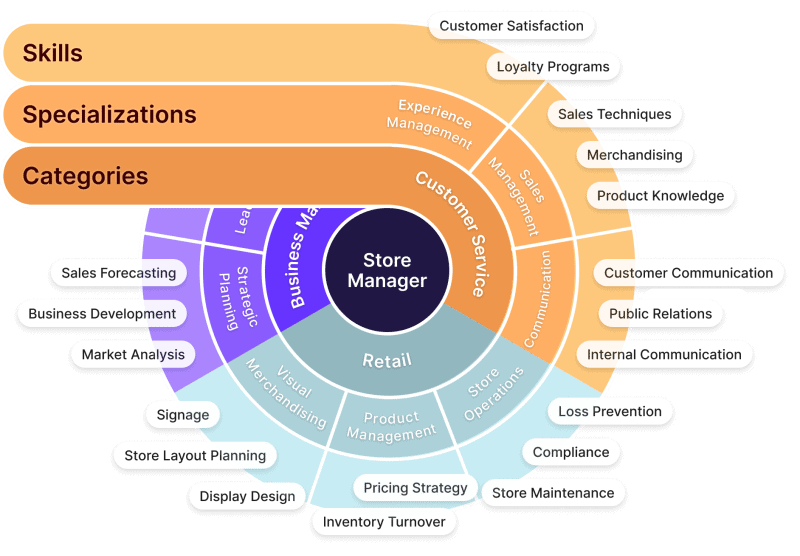When collaborating with colleagues, it’s easy to overlook the impact our work habits have on the organization as a whole. And let me tell you, when those negative habits pile up, they don’t just mess with our own productivity—they also affect how others see us as employees. As someone who has worked alongside various individuals for many years, it frustrates me to witness a lack of responsibility among team members. Even worse, if such behavior goes unchecked and others observe it, this negative attitude can spread throughout the entire workplace. I’m sure you don’t want to be the one responsible for poisoning the team’s dynamics. Read on to learn how you can hold yourself accountable in the work.
Imagine this scenario: one of your colleagues commits to completing an assignment, but when the deadline arrives, it becomes evident that they failed to follow through. This not only impacts the team’s tasks but also hampers overall performance. It’s undoubtedly infuriating. Unfortunately, this is just one example of how a lack of accountability can hinder a team’s progress. During my past years of experience, we frequently received feedback and complaints regarding certain coworkers who posed challenges for the entire team. While there are standard operating procedures in place to address such complaints, let me tell you something even more important—personal accountability. When you know how to hold yourself accountable at work, it’s like opening a whole new world of opportunities. Trust me, it’s a game-changer and will give you a fresh perspective on things.
In a world where businesses need to move fast, having someone in your team that is reliable and accountable is among the most important aspects. Accountability comes first in many situations but even more in modern organizations where teams are highly distributed across regions and continents and companies spend millions to find people that they can really trust and rely on. In today’s article, I will try to explain what accountability means in the context of work and why it’s such a vital skill, one that can take you far if you really embrace it.
Accountability is a highly sought-after trait
The first question we need to start with is: what’s accountability in the context of work? It’s impossible to define it with a few words, but the best way to describe someone accountable – from a company perspective – is by saying that you are reliable.
Accountability entails taking ownership and responsibility for our actions and their outcomes. Prioritizing this in the workplace propels the entire team towards greater productivity and efficiency and especially in small teams you need the majority of people to be accountable. When employees are accountable, they can be relied upon to fulfill their commitments, thereby fostering trust and cultivating strong working relationships. Demonstrating accountability showcases your dedication to your work, respect for the company, and commitment to maintaining your professional integrity.
When you think back to your own initial job interviews, recruiters often try to gauge your level of accountability by asking specific questions. They might want to hear about a recent mistake you made and how you handled it, or perhaps they’ll ask about the biggest failure you’ve experienced in your career. As someone who conducts interviews myself, let me tell you, candidates who demonstrate a strong sense of accountability are definitely more likely to stand out and be seriously considered for the position. Accountability is often translated into proactiveness for employees: there are people that are real owners and are naturally inclined to solve things themselves where there is a new challenge. These people are every managers’ dream anche they are usually
Remember, accountability in the workplace extends beyond simply completing assigned tasks. It encompasses taking ownership of the results, both positive and negative, and being transparent about them. This includes acknowledging and learning from mistakes, as well as taking appropriate actions to rectify them.
The reason why I am saying this is one of the most important skills in business today is due to the fact that companies are usually ok to pay a premium for people they can fully trust and show accountability at each step: it’s one of those skills that are more difficult to learn and that every manager or executive appreciates because it gives them reassurance on your execution. I can’t think of a better skill for any type of role: from junior entry level roles to high-paying roles. Your boss will love how accountable you are and in many organizations that will accelerate your career growth in terms of responsibilities, salaries and rewards.
Especially if you are new to a company, being accountable and highly reliable is often the best way to “position” yourself in the new company.

Struggle with taking the initiative and following through on your actions
Some individuals may be hesitant to accept responsibility themselves while eagerly holding others accountable. Understandably, everyone has their reasons for behaving this way. In my experience teams where leadership is highly accountable work better: like many other values, accountability comes from the top and it’s something that management should constantly promote. At the opposite, where there is little accountability at the top, employees tend to be less reliable, less communicative and proactive: a few people with this traits in a team are enough to destroy the entire’s team accountability.
When people are not accountable, the reason is usually among these:
Fear of failure
People may avoid taking ownership of their actions. It may due to their fear of being judged, criticized, or punished for their failures. This can lead to reluctance to accept responsibility. It depends on your company culture, if there is a culture of fear or even worse, no accountability from the top, it might be an uphill battle. Great leaders not only give space to their people but motivate them and let them make mistakes if necessary.
Pride
When a person inappropriately thinks that he/she is above others. Inflated ego leads individuals to think that rules do not apply to them.
Lack of role expectations and little clarity on the vision
There are times that people have difficulty taking ownership of their tasks. The reason can be because their roles and responsibilities are poorly communicated to them. This results to their struggle to understand what is expected of them. This is a classic issue in teams with little leadership and direction: there is no accountability because there is not clarity on what do and why.
Bad work culture
Accountability will hardly be expected of employees if the work environment does not promote it. It can be a blame-shifting culture where most tenured employees tend to deflect responsibility onto others, or they are always defensive and take offense in feedback. As I said, this needs to come from the top leadership and I’ve seen almost no example of cases where the final employees were able to change things if values and direction are not clear.
While it is important for organizations to address these barriers, oftentimes, companies are already established by the time you join. As an employee, you’ve got to take charge and start with yourself. Be proactive and be the change you want to see in the workplace.
It is never too late to start embracing accountability
You can begin today. Leading by example and promoting accountability within teams and organizations helps in establishing a culture of responsibility, trust, and high performance. We would all benefit from such an organization. However, this will not happen overnight. You have to start adhering to the mindset of owning up your actions. You don’t need any special qualifications—just a willingness to learn how to hold yourself accountable at work.
Seek clarity on role expectations
Make sure you understand what is expected of you and discuss your career goals with your manager. This will increase your confidence in decision-making and create a sense of commitment to your work and performance. Ask your manager how you can help him and then be the most accountable person in the team. Bring solutions in a proactive way and communicate when things don’t go as expected.
Be present
Show up consistently, even during challenging times. Attend meetings, participate in quick huddles, and engage in other important events. Your reliable presence makes a difference.
Provide quality outputs
Approach your tasks with diligence and aim to provide results within the agreed-upon timeline. A job well done is commendable, but delivering high-quality work within the given timeframe is even better. In great companies this is always noticed and people will respect you more and more as time passes.
Support your colleagues
Show genuine support during both challenges and successes. This demonstrates that you value your colleagues beyond mere work relationships.
Accept feedback
Welcome your colleagues’ and manager’s comments on your work with open arms. Use the feedback as an opportunity for growth and self-improvement.
Address issues
Don’t ignore workplace issues or assume they will resolve themselves. Instead, raise concerns as they arise and come to the table with potential solutions.
I know that we all aspire to work in an inspiring environment where our value is acknowledged, and we actively contribute to its growth. To increase the likelihood of realizing this dream, we must take shared responsibility. Although organizations can make significant efforts to shape the work environment, you, as an employee, play a vital role in its success. Embracing accountability doesn’t just benefit the company, it benefits you too. It opens doors for personal growth, paves the way for career advancement, and strengthens your relationships with others.
Believe me, there’s something incredibly fulfilling about being a valuable asset to the company and inspiring others to do the same. You’re creating a positive work culture that everyone can thrive in.
Les Brown once said, “Accept responsibility for your life. Know that it is you who will get you where you want to go, no one else.”
I hope you found the article informative and helpful. We will revisit this topic in the future to discuss further how to effectively answer interview questions about accountability. Keep an eye out for additional insights on this subject!
July 11, 2023


